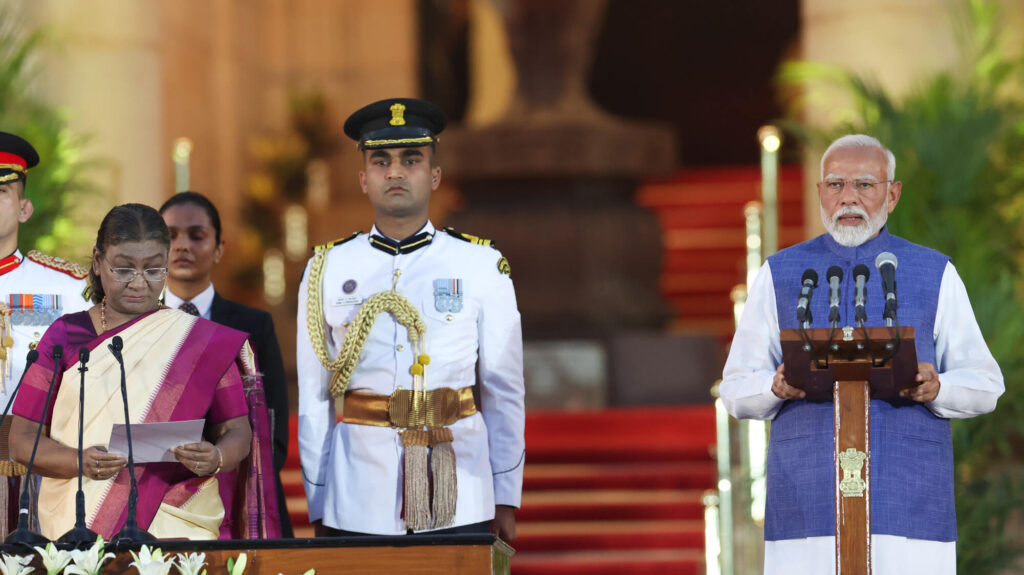
As the dust settles on the 2024 general elections and new government assumes charge, it is clear that the ‘silent’ voter has spoken quite strongly and the real winner is India’s democracy. The intricate tapestry of voter sentiment and political dynamics , has left the Bhartiya Janta Party (BJP) stranded for a majority.
According to CSDS-Lokniti’s post-poll survey, a drop in satisfaction levels with governance, the stagnating popularity of Prime Minister Narendra Modi, the resilience of regional parties and the rejuvenation of the Congress Party and the fading of Hindutva for marginalized sections in the Hindi heartland contributed to BJP’s reduced majority in this election. The BJP, on its own, stopped short of a majority mark of 272 seats with 240 wins, which compelled it to lean on among others the two regional parties i.e., TDP and JDU from the States of Andhra Pradesh and Bihar respectively to form the government. It is a marked difference from the sweeping mandates of 2014 and 2019, when the BJP garnered 282 and 303 seats respectively, achieving a majority on its own. On the other hand, defying all predictions, the Opposition INDIA bloc put up a power fight and claimed 233 seats. Significantly, the Congress – India’s primary opposition party almost doubled its 2019 tally, grabbing 99 seats.
Time to introspect and change
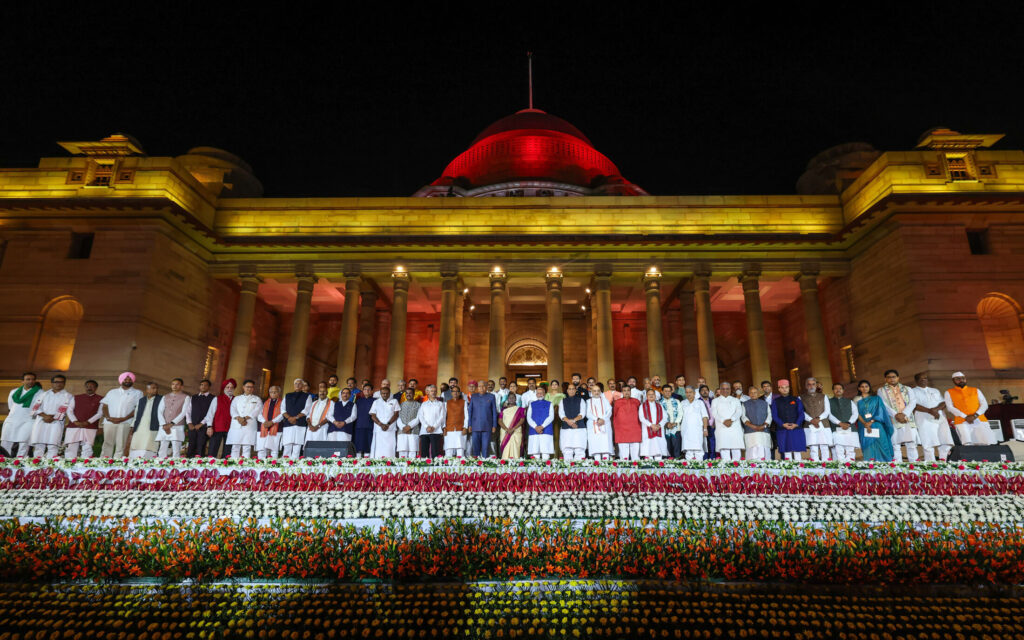
This has led the BJP to introspect and deliberate on where they went off the mark, especially since they were initially confident of securing 400 seats. The party must understand that the citizens of this democratic nation possess the discernment to elect their leaders based on concrete achievements and genuine welfare initiatives, rather than empty slogans and divisive rhetoric. Although the government has accomplished certain notable works over the past decade—such as the abrogation of Article 370, providing free food grains to about 80 crore people, building approximately 120 million toilets, and implementing strong foreign policies—these achievements have largely been praised by the citizens. However, the government has also been criticized for actions perceived negatively by voters, including divisive politics, the alleged misuse of Central Investigating agencies like CBI and ED against the opposition, passing Bills in Parliament without proper deliberation, rising unemployment, paper leaks, concentrated power and the growing inequality between the rich and poor.
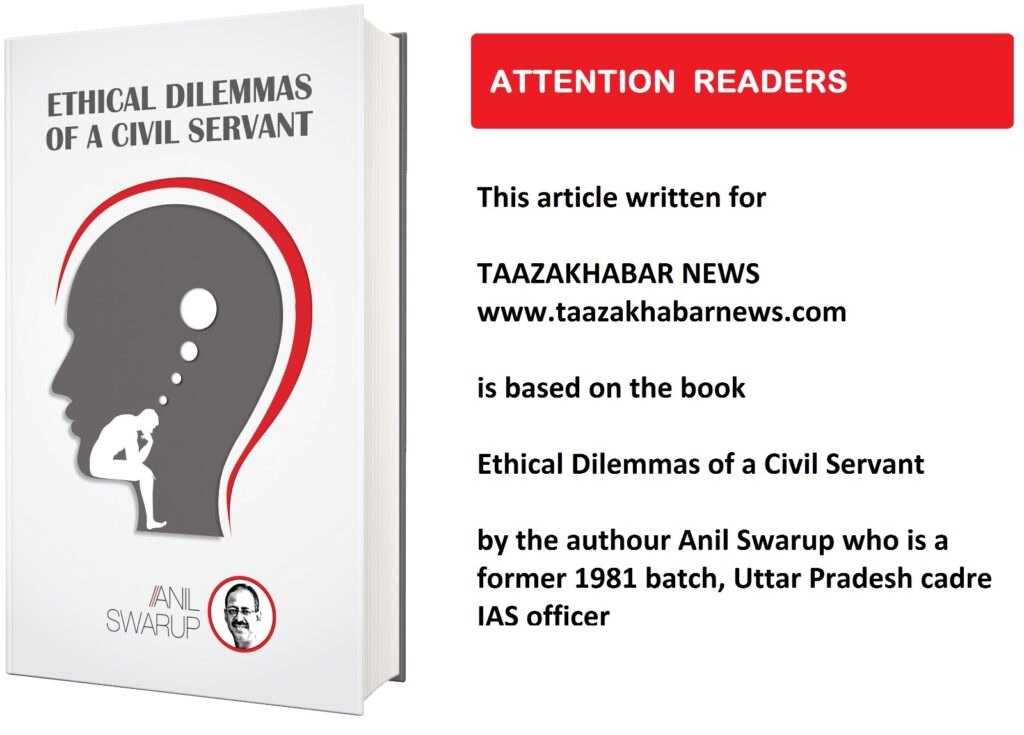
To regain the trust of the people and stay competitive in the next general elections, the government would focus more on ground-breaking tangible development, welfare, and the protection of citizens’ rights. Rightly so, it must undertake significant and impactful work that resonates with the populace. Moreover, this time, instead of outright rejecting the unfavourable rankings and assessments given to India by international organizations, the government should address these concerns through substantive actions and reforms that rebuild trust and demonstrate their commitment to the nation’s progress.
Election Verdict points out the importance of Economic Issues

According to World Bank figures, India’s average annual economic growth under Modi was slightly below 6%, even excluding the Covid years, compared to over 6% during the Congress period from 1991 to 2013. Despite the “Make in India” initiative, manufacturing and job creation lagged, with industrial growth remaining sluggish and well-paying jobs scarce. Economic inequalities also widened, with the World Inequality Report (2021) showing the top 1% of Indians increasing their wealth share from 30.7% to 42.5% between 2012 and 2020, while the bottom 50% saw their share drop from 6.4% to 2.8%. This presents a significant challenge for the new government, which must address these economic disparities and reinvigorate growth.
Furthermore, the new government must prioritize five key economic areas, which puts forward a significant challenge. First, despite an 8.2% GDP growth in 2023-24, forecasts for 2024 are modest at 6.7% (Goldman Sachs) and 6.8% (Crisil), hindered by interest rate hikes, a lower fiscal deficit, and weak consumption growth at 4% in 2023-24, the weakest for a non-pandemic year in over a decade. Second, reversing jobless growth is crucial, as the Indian Employment Report 2024 by the International Labour Organization reveals that from 2012 to 2019, gross value added grew 6.7% while employment grew only 0.01%. Youth unemployment was 17.5% in 2019 and 12.4% by 2022, with much of this being distressed employment. Third, private sector investment in new capacity has declined, with fresh investment announcements dropping 15.3% in 2023-24 and foreign investments falling 32%. Fourth, goods exports have stagnated, declining 3% in 2023-24, with total exports remaining flat since 2021-22, excluding oil and gems and jewellery. Crucially, India must capitalize on global trade frictions and the government’s production-linked incentive scheme to boost exports. Fifth, improving rural livelihoods is essential as rural incomes have remained weak and agricultural employment increased post-COVID. The government must make agriculture more remunerative and boost employment in non-agriculture sectors, such as manufacturing and services, to address these challenges effectively.
Social Welfare

Social security is a human right, according to the United Nations Declaration of Human Rights. The ILO’s Recommendation of 2012 has called for all nations to institute a “social protection floor”. According to the ILO’s World Social Protection Report, 2022, India spends too little on social protection. As the events of 2020 and 2021 reminded us, precariousness and vulnerabilities remain concerns, with informal employment in India as high as 90 per cent of the workforce. However, between 2019 and 2024, we have seen a chaotic, slow, but steady expansion of social protection programmes and schemes for vulnerable households. These have largely been impelled by political-economy considerations. For instance, initially, the central government opposed expanding social welfare programs like MGNREGA but introduced an income transfer scheme for farmers before the 2019 elections. Amidst the Covid pandemic, MGNREGA and the National Food Security Scheme were expanded. Currently, cereal distribution is free for 800 million households under the National Food Security Act. Given the government’s claims of reduced poverty and hunger, and doubled farmers’ income, these expansions seem politically motivated.
Also Read: Making things happen in Government
Welfare schemes must be provided to people without thinking of any political gain as governments are not corporations, acting only for profit. This issue must be addressed along with the issue of leakages in welfare schemes by the new government. At present, the welfare schemes of the Central Government are prone to leakages and are often misused by ineligible beneficiaries. To address this and effectuate the poll promise while delivering welfare schemes to all deserving individuals without any leakage, it is suggested that the following policy be implemented. First, the government may consider leveraging upon the existing Aadhar and UMANG framework and creating a unified beneficiaries database by authorising UMANG as a single-window system for registrations/enrollment into all Central Government schemes. Second, this may be accompanied by a unique, verifiable identification system, which would be mandatory to produce before enrolment into any scheme, irrespective of its nodal agency, which shall ensure the auto-synchronization of beneficiary details across all departments, thus ensuring data sanctity, while negating chances of onboarding fake beneficiaries and leakages in service delivery.
Inclusion and social harmony
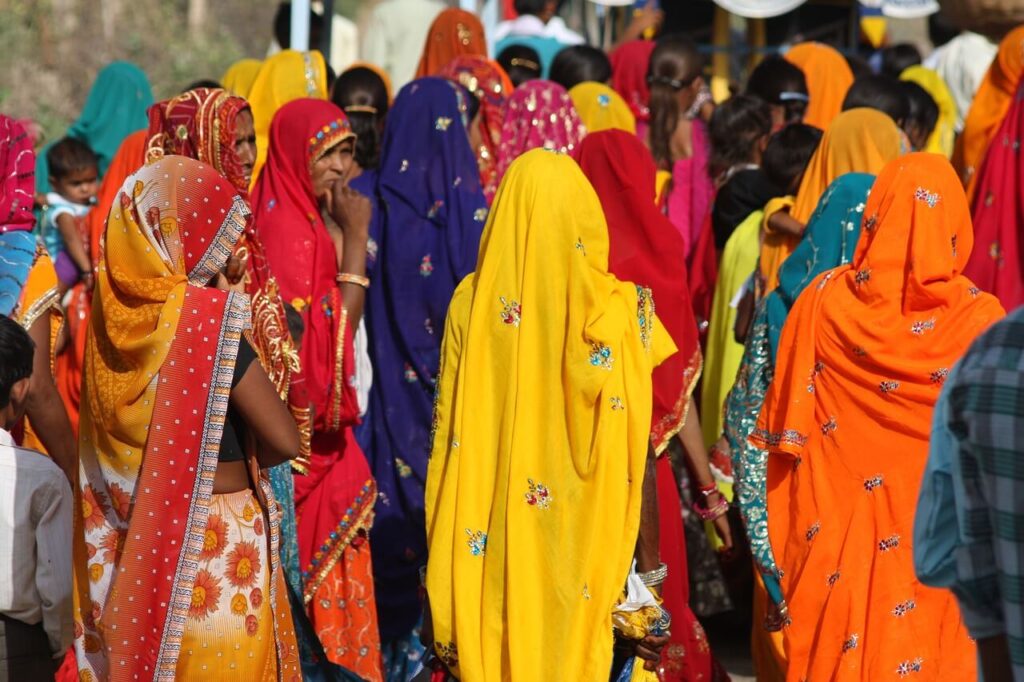
The lifeblood of the Indian democracy is its diversity and the BJP government has been less than respectful of that in the last decade. Consequently, the new government faces several challenges regarding the same. Therefore, first, it must foster acceptance across different faiths, genders, and cultural habits, and support marginalized groups. Encouraging young people to pursue their dreams, nurturing dissent, and recognizing the contributions of those unjustly imprisoned are vital steps. Protecting forests and forest dwellers, and building bridges between communities are essential for social harmony.
Inclusivity should replace exclusionary language and practices. It is crucial to discuss and debate issues democratically, avoiding labels like “infiltrators” and “anti-national.” Tolerance must be practised, but hate must not be tolerated. Restoring faith in education, progress, and the Constitution is key. The government should promote the Constitution’s values, ensuring rights such as equality, freedom of speech, and religious practice are protected. Further, the resurgence of constitutional awareness among citizens should be leveraged to guard against rights erosion and support those in need. Moreover, the government and the opposition shall focus on ample debate and deliberation before passing a Bill in the Parliament as they are crucial for the governance of this great nation. Finally, fostering interfaith and intercultural bonds, celebrating diversity, and prioritizing humanity over empty slogans will help maintain this inclusive spirit. The new government must ensure this inclusive mood endures, embracing joy, pride, and unity.
Foreign Policy
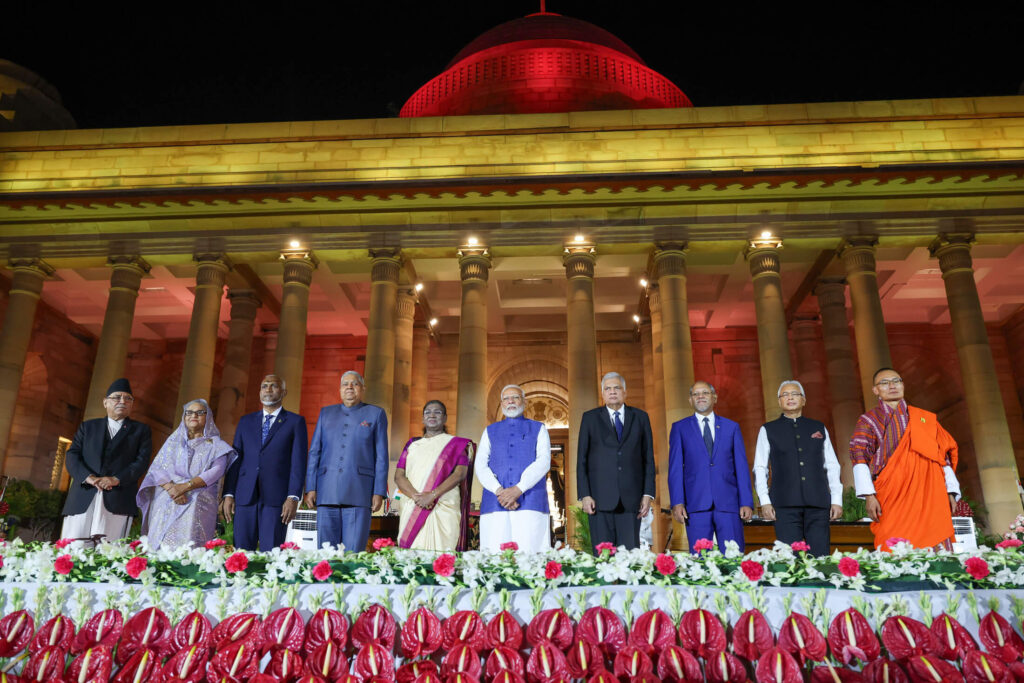
One of the Modi government’s achievements over the past decade is creating the perception of India as a major global player. This has been driven by assertive diplomacy and efforts to establish India as both a Vishwa Guru (world teacher) and Vishwa Bandhu (world friend), along with aspirations for a prominent seat in international forums. This strategy will likely continue, but it will require skilful adaptation to a rapidly changing global landscape. While the core policies are expected to remain, the Modi 3.0 government may need to adjust its focus on speed, scale, and spread as internal and external criticisms grow louder.
With regard to India’s international policy, a crucial lesson from the 2024 general elections is that foreign policy consensus should not be sacrificed for electoral gains. Recent campaign rhetoric, such as revisiting the Katchatheevu agreement with Sri Lanka, labelling the Congress party as “disciples of Pakistan”, promising to reclaim Pakistan-Occupied Kashmir within six months, or threatening nuclear action, may appeal to domestic voters but could strain international relations. Notably, India’s relationships with its smaller neighbours are particularly delicate, and using these issues for political leverage risks exposing vulnerabilities and appears short-sighted to global observers. The proper platform for the government to assert foreign policy, or for the Opposition to air its differences with it, is not the hustings, but Parliament.

Overall, India’s foreign policy will continue to face substantial challenges, including the unpredictability stemming from the Russia-Ukraine and Israel-Hamas conflicts, technological advancements like AI and semiconductor developments, and escalating US-China tensions. Amid these global challenges, maintaining a focus on the immediate neighbourhood remains essential. These issues demand a comprehensive governmental approach.
While the Modi 3.0 government stands at a critical juncture, India has once again proved to itself and the world that it is a vibrant and functioning democracy. The new government has a responsibility to live up to the expectations of the people as they are much more than a voter base. Importantly, the mandate of 2024, which has deepened Indian democracy and constitutionalism, should yield policies and decisions that enjoy widespread acceptance, and governance that brings the nation together in addressing the daunting challenges of our age, including a pervasive assault on fundamental freedoms through an arbitrary exercise of power.
(With contribution from Kartikey Singh)

